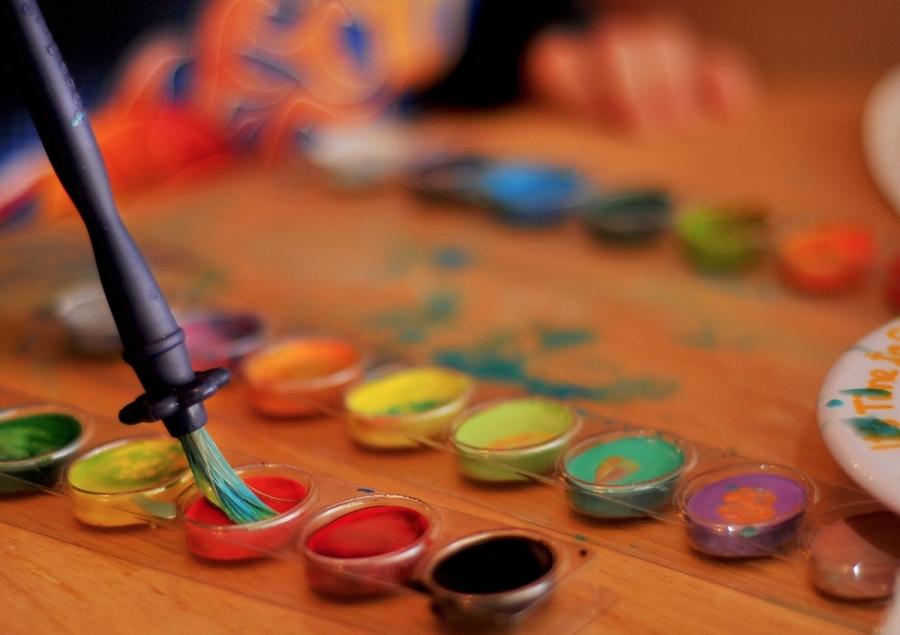Can money buy happiness?
“Where is she? How could she do this to me? She never does this! There has to be something wrong,” my aunt said as she frantically searched for my cousin’s nanny’s number to see why she had not picked my cousin up from school yet.
Three hours had gone by after my cousin’s school had finished, and there was still no sign of her. Not a call. Not a voicemail. Not a text message. Not an email. Nothing. It just was not like her.
My aunt finally did a simple Google search with her name to see if there was any other way to reach her, and the unexpected happened.
There she was. Front headline, first search. “Wrong-way driving on I-280 turns deadly in Palo Alto.”
The previous night, she had been driving back from San Francisco when there was another car traveling the opposite way. She was heading southbound, but he was heading north on the same side. It had been that way for a while, but other cars were able to dodge it.
She could not. Both cars collided head on. The other driver died on the spot. She had broken almost every bone in her body and was in a state of coma. She needed a miracle.
She did not come from an extremely wealthy background. She lived with her mom and her sisters. She worked two jobs in between her college classes at De Anza College. Money to pay for all her treatment would not be easily accessible.
When my aunt set up a GoFundMe page in order to raise money for her treatment, it struck me. The common expression, “Money does not buy happiness,” was wrong. The only light at the end of this dark tunnel was her life, which depended on money. But even that was not enough. She passed away a week later.
It makes me wonder if she had come from a better background would she have ever had to be put in that situation of driving late at night from job to job. Those with more money are tend to have better lifestyles, and it is sad that money plays such a huge role in that sense.
Poorer schools are stripped from arts programs. These kids are stripped from a skill that provides them with some of the most valued traits a person could have such as self-esteem, confidence, motivation or love for learning, and most importantly pure happiness. A person is simply not complete without the arts. Arts take the mind to a different place to creates a strong, well-rounded, confident human being. Future generations are left hanging without these programs. Even though the strong positive impact of these programs is so evident, these arts programs are still taken away from these students merely because of the lack of funds.
These two incidents made me realize how dictatorial money really can be. We are nothing but money’s slaves, or even money’s puppets constantly dancing to its tunes. We fall into an addictive trance, chasing after that intangible object, money, in order to achieve the highest level of happiness.
Our lives are curbed and dictated based on the amount of money we have. Money opens ourselves up to life-changing opportunities that we would not be available otherwise.
Yes, we should not derive our only happiness from money, but money does play a huge part in our happiness.
Had that 20-year-old nanny come from a decently well-to-do family, she might not have had to overwork herself and endanger herself. Had there been even more money for treatments, the story might have ended a different way. Had there been more money in our education system, we could have more smiles on our nation’s students.
Money should not buy us happiness, yet money is really the only thing that can give one happiness. Money is, unfortunately, what makes this world go round. Without money, one can simply not reach the pinnacle of happiness.

Sharanya Balaji (12) is the Editor-In-Chief for Harker Aquila and has been on staff for the past three years. Additionally, during her freshman year she...




![LALC Vice President of External Affairs Raeanne Li (11) explains the International Phonetic Alphabet to attendees. "We decided to have more fun topics this year instead of just talking about the same things every year so our older members can also [enjoy],” Raeanne said.](https://harkeraquila.com/wp-content/uploads/2025/10/DSC_4627-1200x795.jpg)


















![“[Building nerf blasters] became this outlet of creativity for me that hasn't been matched by anything else. The process [of] making a build complete to your desire is such a painstakingly difficult process, but I've had to learn from [the skills needed from] soldering to proper painting. There's so many different options for everything, if you think about it, it exists. The best part is [that] if it doesn't exist, you can build it yourself," Ishaan Parate said.](https://harkeraquila.com/wp-content/uploads/2022/08/DSC_8149-900x604.jpg)




![“When I came into high school, I was ready to be a follower. But DECA was a game changer for me. It helped me overcome my fear of public speaking, and it's played such a major role in who I've become today. To be able to successfully lead a chapter of 150 students, an officer team and be one of the upperclassmen I once really admired is something I'm [really] proud of,” Anvitha Tummala ('21) said.](https://harkeraquila.com/wp-content/uploads/2021/07/Screen-Shot-2021-07-25-at-9.50.05-AM-900x594.png)







![“I think getting up in the morning and having a sense of purpose [is exciting]. I think without a certain amount of drive, life is kind of obsolete and mundane, and I think having that every single day is what makes each day unique and kind of makes life exciting,” Neymika Jain (12) said.](https://harkeraquila.com/wp-content/uploads/2017/06/Screen-Shot-2017-06-03-at-4.54.16-PM.png)








![“My slogan is ‘slow feet, don’t eat, and I’m hungry.’ You need to run fast to get where you are–you aren't going to get those championships if you aren't fast,” Angel Cervantes (12) said. “I want to do well in school on my tests and in track and win championships for my team. I live by that, [and] I can do that anywhere: in the classroom or on the field.”](https://harkeraquila.com/wp-content/uploads/2018/06/DSC5146-900x601.jpg)
![“[Volleyball has] taught me how to fall correctly, and another thing it taught is that you don’t have to be the best at something to be good at it. If you just hit the ball in a smart way, then it still scores points and you’re good at it. You could be a background player and still make a much bigger impact on the team than you would think,” Anya Gert (’20) said.](https://harkeraquila.com/wp-content/uploads/2020/06/AnnaGert_JinTuan_HoHPhotoEdited-600x900.jpeg)

![“I'm not nearly there yet, but [my confidence has] definitely been getting better since I was pretty shy and timid coming into Harker my freshman year. I know that there's a lot of people that are really confident in what they do, and I really admire them. Everyone's so driven and that has really pushed me to kind of try to find my own place in high school and be more confident,” Alyssa Huang (’20) said.](https://harkeraquila.com/wp-content/uploads/2020/06/AlyssaHuang_EmilyChen_HoHPhoto-900x749.jpeg)



